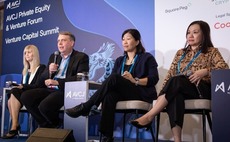
PE sees rise in post-deal disputes

Post-closing claims against PE firms have shot up since the global financial crisis, causing cash to be held back from exits and IRRs to suffer. What does it mean for Asia?
Few thought that Oak Investment Partners and Gobi Partners' sale of Digital Media Group (DMG) in October 2009 was a particularly successful exit. Even fewer people suspected, however, that a dispute over the terms of this deal would still be raging more than two years after the contracts were signed with VisionChina, DMG's purchaser.
The problems emerged last year, when VisionChina accused Oak and Gobi of engaging in fraud and a host of other offenses. The venture capital firms responded with counter-suits complaining that VisionChina had willfully reneged on its promise to pay two installments of $30 million - the balance due on the $160 million acquisition - by a pre-agreed deadline. Earlier this month, a US court ruled that Oak and Gobi would likely prevail in their action and granted an attachment on $30 million of VisionChina's assets. They have since filed a claim for at least $60 million, although VisionChina still has a pending claim for $2.78 million accusing the VCs of breach of contract.
According to Chris Letang, the lawyer working on the DMG case on behalf of Shareholder Representative Services (SRS), both Oak and Gobi have been substantially inconvenienced by the lengthiness of these proceedings. "The time and manpower involved have been a huge burden for them," he says.
Rising claims
Oak and Gobi aren't the only venture firms to receive complaints from an unhappy customer post-sale. According to a new study by SRS, which represents many shareholders exiting investments, there has been a significant increase in post-closing claims since the onset of the global financial crisis. As a result, cash held in escrow from transactions as an emergency reserve has yet to be distributed to investors.
The study looked at 128 private-target acquisitions which closed between 2007 and 2010. Interestingly, claims were most likely to arise where a PE firm was the buyer (as well as the seller) on a transaction. According to Paul Koenig, managing director of SRS, this could be because the returns tend to be the most important aspect of an investment where private equity, whereas a trade buyer has strategic considerations.
Many grievances involve intellectual property and tax issues, with action often taken by so-called patent trolls, who can potentially sue both the vendor and the buyer if they believe a company has used their patent. In the life sciences sector, meanwhile, a trend seems to be emerging for earn-out disputes.
"We're seeing life sciences companies selling earlier in their life cycles and leaving more to a revenue-sharing arrangement later in the form of earn-outs," says Koenig. "They're still fraught with the risk of disputes, because unexpected changes occur during the company's lifespan."
One example he gives is of a pharmaceutical business which, at the time of sale, agreed to an earn-out clause relating to the projected success of its drug in the EU. The buyer then decided to develop the drug in Asia rather than Europe, and so the earn-out clause was never triggered. The disgruntled former shareholders inevitably sought legal redress.
The overall findings - including the fact that 56% of all deals involved at least one claim made by the buyer - broadly tally with the observations of another industry executive. Roger Peng, a Beijing-based partner for law firm Paul Hastings, says that not only are a many vendors facing post-closing claims, but the financial terms are also tougher at the point of sale. Earn-outs last longer and the escrow is often more significant in size than in earlier deals.
Troubling times
It's easy to understand what purchasers have to gain from clashing with the vendor if they discover problems post-sale. Why, though, have claims increased since the financial crisis? According to Koenig, "buyer's remorse" is largely to blame as acquirers find that assets are unable to deliver on initial expectations due to the poor economic climate.
Peng agrees, adding: "If the financial crisis has affected the buyers, they will want to compensate for that using whatever means possible."
Industry participants put forward to other potential explanations. First, company employees are often less busy now than during the boom period, allowing more time to parse the finer details of deals. Second, if an acquirer's core business is underperforming, there is a tendency to get more aggressive on all the contracts, whether they be merger agreements or commercial agreements.
Whatever the reason for the rise in claims, the increased litigation appears to have placed extra strain on private equity and venture firms. Although SRS' study found that an average of 86% of the initial escrow is released to shareholders, causing minimal damage to IRRs, the average claims process against exiting firms takes eight months to resolve. Worse still, almost a quarter of buyers' claims are made in the last week of the escrow period, which tends to lock up the money so it doesn't get released when expected.
"It's more work for [GPs'] teams, because they've got to pay attention to these issues when they come up, and when they do come up, and there are substantial delays in the money getting returned, even if they are able to eventually prevail on the issue," says Koenig.
Looking east
As far as Asia is concerned, the tide of private equity capital that has entered the region coupled with high-profile reports of earnings manipulation and tax evasion among certain companies in China and India have prompted concerns that post-sale claims will rise. For the moment, however, the opposite appears to be true, with foreign investors' cautiousness regarding this relatively exotic territory ensuring claims are kept to a minimum.
"A lot of deals are audited in the UK or the US as the funds are very aware of the rumors surrounding Chinese public companies with unscrupulous books," points out Koenig. "They're working through any problems before they close the deal, rather than have a claim that comes up after closing."
Peng, however, suggests the management practices at Chinese companies could lead to more indemnification procedures in the future. Privately-run firms, he argues, are even worse than their public counterparts, and due diligence only goes so far. "Claims will arise if those companies do a trade sale as the buyer will eventually find out about their problems," he warns. "Due diligence helps but you can never be 100% sure of something in this market."
For PE firms targeted by a rising number of claims, options do exist. One possibility is to sell off escrows, or hire specialist managers to run the process on the fund's behalf. This typically appeals to end-of-life fund managers keen to tie up their current fund and hit the fundraising trail afresh, and to those requiring liquidity, to put capital to work in another company.
Some, though, simply choose to sell because they fear the risks involved with managing the escrow themselves.
Koenig sums up the reasoning as follows: "If you expect you get 85 cents in the dollar back, how much do you want to pay to make sure you get your return?
Latest News
Asian GPs slow implementation of ESG policies - survey
Asia-based private equity firms are assigning more dedicated resources to environment, social, and governance (ESG) programmes, but policy changes have slowed in the past 12 months, in part due to concerns raised internally and by LPs, according to a...
Singapore fintech start-up LXA gets $10m seed round
New Enterprise Associates (NEA) has led a USD 10m seed round for Singapore’s LXA, a financial technology start-up launched by a former Asia senior executive at The Blackstone Group.
India's InCred announces $60m round, claims unicorn status
Indian non-bank lender InCred Financial Services said it has received INR 5bn (USD 60m) at a valuation of at least USD 1bn from unnamed investors including “a global private equity fund.”
Insight leads $50m round for Australia's Roller
Insight Partners has led a USD 50m round for Australia’s Roller, a venue management software provider specializing in family fun parks.






